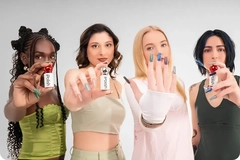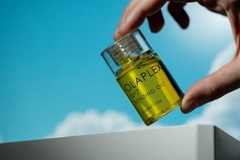Brazil opens comments for proposed banning of 28 substances in personal care products

A federal agency in Brazil is working to close a gap between its cosmetics regulations and those of the EU. To support increased public safety, it has drafted a resolution to update the list of substances banned from use in cosmetics, hygiene products and perfumes.
If adopted, the resolution would add 28 substances to the list and bring Brazil’s regulations more closely in line with the European Cosmetics Regulation list of prohibited substances.
The newly listed substances include diboron trioxide, boric acid salts and esters, butylphenyl methylpropional, polyurethane-18 and -19, dibutyltin hydrogen borate and diaminotoluene. The resolution also lists five substances for exclusion: mequinol, benzoyl peroxide, methyl eugenol, azelaic acid and hydroquinone.
These chemicals may appear as preservatives, dyes, filters, fixing agents and straighteners in personal care products.
Brazil’s Health Regulatory Agency (Anvisa) has opened a 60-day comment period regarding the resolution draft. Anvisa, which is linked to the country’s Ministry of Health, is set up to protect the population’s health through control of the production, marketing and use of products that fall under health regulation. The final date for comments is March 7 this year.
A focus on Benzophenone
Brazil’s proposed resolution of banned cosmetic substances also modified the wording for substance entries, such as benzophenone-4 and mercury and its compounds. Benzophenone is a colorless chemical that is used as a sunscreen ingredient and a perfume fixative.
Simultaneously, the EU Scientific Committee on Consumer Safety (SCCS) closed the comment period for its opinion on Benzophenone-1 on January 13. The SCCS’s preliminary opinion states that the committee cannot conclude on the chemical’s safety.
“The available evidence also shows that benzophenone-1 is an endocrine-active substance due to clear demonstration of estrogenic activity and weak anti-androgenic activity both in vitro and in vivo, and potential activity against thyroid modality in vitro,” says the SCCS.
The US National Oceanic and Atmospheric Administration has also identified the chemical as being harmful to marine life.
Personal Care Insights previously reported on the SCCS’s final opinion on benzophenone-4, which concluded that the chemical was safe for use at a maximum concentration of 5%. Benzophenone-4 is used as a UV filter in cosmetics products and stabilizes formulations when they come in contact with sunlight.













